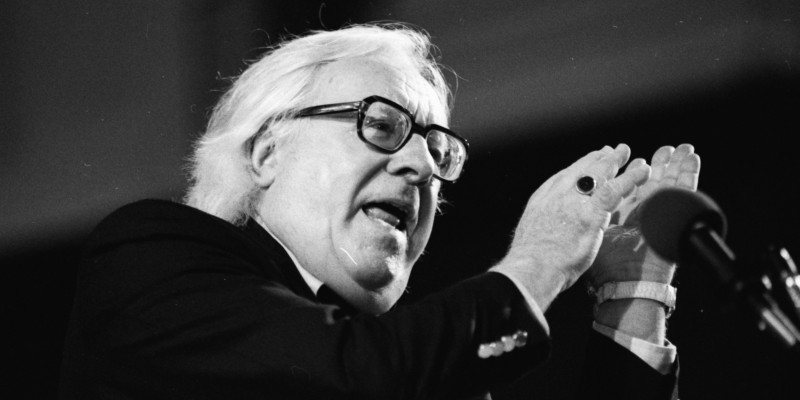If Ray Bradbury rose from the dead and came to this website, he would likely rant about what he would see as an error in the menu bar: entertainment has four nodes – TV/Film/Video, Music, Video Games, and Comics.
But no books.
Bradbury, who died last week, was an explosive book lover and library defender. He was an enemy of the internet, damning Yahoo and its ilk when they asked permission to digitize his work. Bradbury’s vision of a world gone bookless in Fahrenheit 451 is the new reality. The cause isn’t a nightmare regime but technology itself.
 Some of this technology Bradbury envisioned back in 1953. Consider thimble radios in Fahrenheit that lull Montag’s wife into a stupor, shutting out depressing distractions like her husband. According to Technovelgy.com, these thimble radios were designed in 1959, which is only six years after the apparently prophetic novel’s publication. Today, everyone blocks out someone now and again — perhaps often — through the use of smartphones and tablets. In Fahrenheit 451, people also speak to each other through screens, watch television incessantly, and so behave in anti-social, detrimental ways our Facebook generation takes for granted.
Some of this technology Bradbury envisioned back in 1953. Consider thimble radios in Fahrenheit that lull Montag’s wife into a stupor, shutting out depressing distractions like her husband. According to Technovelgy.com, these thimble radios were designed in 1959, which is only six years after the apparently prophetic novel’s publication. Today, everyone blocks out someone now and again — perhaps often — through the use of smartphones and tablets. In Fahrenheit 451, people also speak to each other through screens, watch television incessantly, and so behave in anti-social, detrimental ways our Facebook generation takes for granted.
Perhaps the best example of Bradbury’s feeling on technology came not from dystopian Fahrenheit, but a short story he wrote called The Veldt. Two unwitting parents spoil their kids with a virtual reality nursery where the children create an African savanna patrolled by lions. The kids love their holodeck and revile their parents who threaten to unplug it. Fantasy spoiler: The veldt comes to life, and the kids lock their parents inside where the virtual lions devour them.
That’s Bradburyian tech endgame. To take over, to destroy the connections of blood with ties of wire and LCD interface. He hated the net. He told the New York Times that technology is “meaningless; it’s not real. It’s in the air somewhere.”
Logical for an ancient bibliophile. But the internet isn’t air. It’s fire. The Atlantic touched on the internet’s assault on the plodding written word in an article titled “Is Google Making Us Stupid?“:
“As the media theorist Marshall McLuhan pointed out in the 1960s, media are not just passive channels of information. They supply the stuff of thought, but they also shape the process of thought. And what the Net seems to be doing is chipping away my capacity for concentration and contemplation. My mind now expects to take in information the way the Net distributes it: in a swiftly moving stream of particles. Once I was a scuba diver in the sea of words. Now I zip along the surface like a guy on a Jet Ski.”
Remember Fahrenheit 451: Montag steals a book. He tries to read, “…haltingly and with a terrible self consciousness.” Now, there are no books left on the menu and we don’t even notice. Bradbury warned us.
“It was a pleasure to burn. It was a special pleasure to see things eaten, to see things blackened and changed.”
Like Bradbury’s carnage-laden Veldt – the internet is a virtual book eater.


Comments are closed.